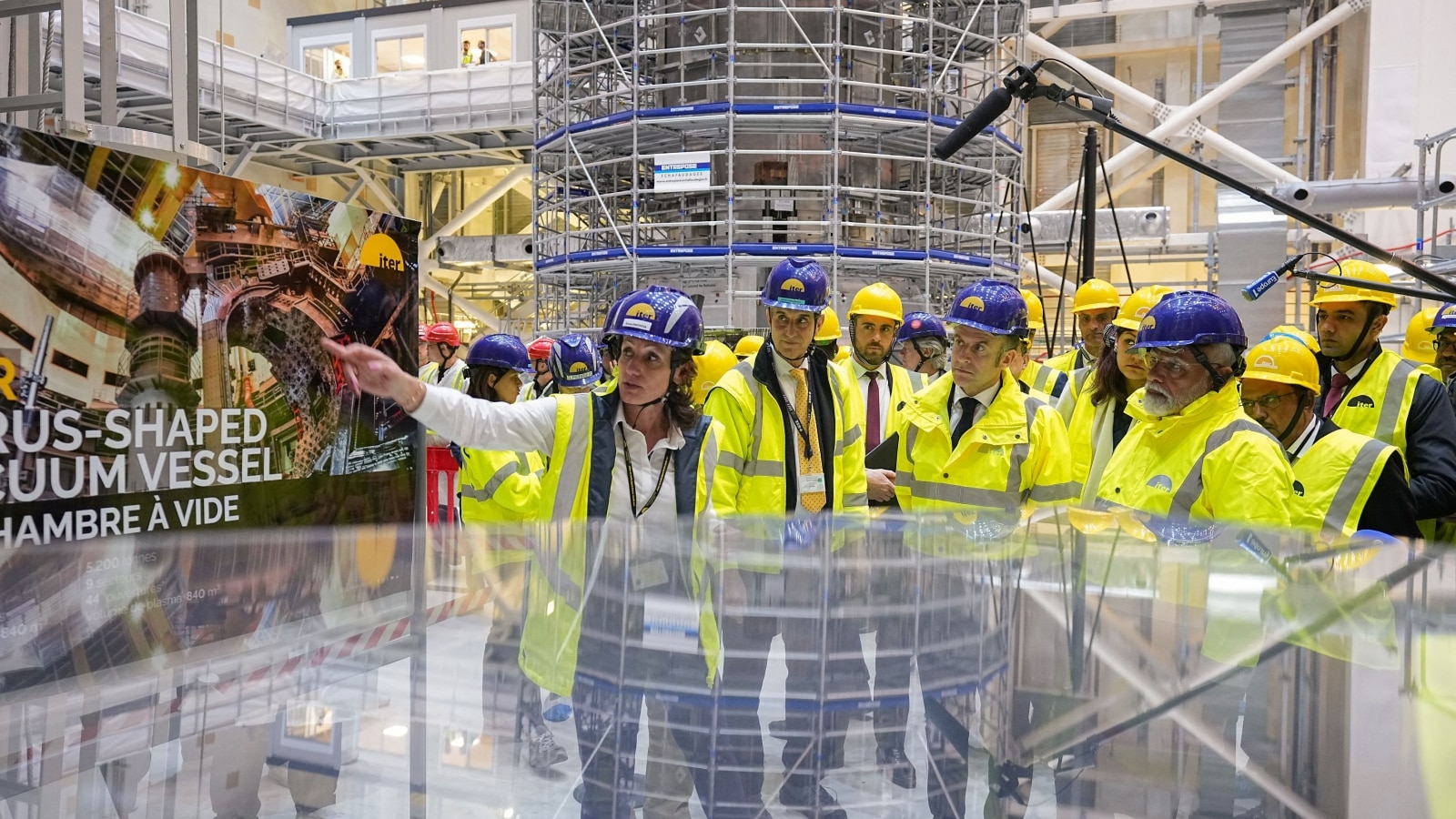 |
|
Prime Minister Narendra Modi's recent visit to the International Thermonuclear Experimental Reactor (ITER) facility in Cadarache, France, alongside French President Emmanuel Macron, underscores the significant role India plays in the global pursuit of fusion energy. This ambitious project, decades in the making, represents a landmark effort to harness the power of the sun – nuclear fusion – for a sustainable and carbon-free energy future. The visit itself was historically significant, marking the first time a Head of State or Government has visited the ITER facility. This highlights the growing international importance placed on the project's success and the recognition of India's substantial contributions.
The ITER project is a monumental undertaking involving a collaboration of 33 nations, including India, which is one of the seven principal members (alongside China, the European Union, Japan, Korea, Russia, and the United States). For over two decades, these nations have pooled their scientific expertise, engineering prowess, and financial resources to build the world's largest tokamak – a device designed to confine and control the extremely hot plasma required for fusion reactions. The tokamak's intricate design involves powerful magnets to contain the plasma, preventing its uncontrolled expansion and energy loss. The successful operation of the ITER tokamak is anticipated to produce 500 MW of fusion power, demonstrating the feasibility of fusion as a large-scale energy source. While ITER itself will not generate electricity, its success will pave the way for the design and construction of future fusion power plants capable of producing electricity at a commercial scale.
India's involvement in ITER extends beyond mere financial contribution. Approximately 200 Indian scientists, engineers, and associates are actively engaged in the project, representing a considerable intellectual and human resource investment. Furthermore, several prominent Indian companies, including Larsen & Toubro (L&T), Inox India, Tata Consultancy Services (TCS), and others, have played a crucial role in the manufacturing and supply of components for the ITER facility. This level of participation reflects India's commitment to advanced technology development and its desire to become a leader in the field of fusion energy. The successful operation of ITER could profoundly impact India's energy security, reducing its reliance on fossil fuels and mitigating climate change. The benefits extend beyond energy, with potential spin-off technologies and advancements applicable across various sectors.
The significance of PM Modi's visit is multifaceted. It symbolizes India's strong commitment to the ITER project and its unwavering support for international scientific collaboration. The visit also serves as a powerful message, emphasizing the importance of sustained investment in scientific research and technological innovation for the betterment of humanity. It reinforces India's standing on the world stage as a nation actively engaged in tackling global challenges like climate change and energy security. Moreover, the visit highlights the potential for future technological collaborations and knowledge sharing between India and other participating nations in the ITER project. This collaboration transcends mere energy production; it promises advancements in materials science, plasma physics, and superconductivity, which will have wider technological implications beyond energy generation.
Beyond its immediate implications, the success of ITER could hold revolutionary consequences for the world's energy landscape. Fusion power, unlike fission power which relies on uranium, offers a virtually inexhaustible and clean energy source. The raw materials for fusion – deuterium (found abundantly in seawater) and tritium (which can be bred in a reactor) – are widely available, eliminating concerns about resource scarcity and geopolitical tensions associated with fossil fuels and even uranium-based nuclear energy. The clean nature of fusion, generating minimal waste and no greenhouse gas emissions, positions it as a crucial element in addressing climate change and building a sustainable future. The success of ITER marks a giant leap towards securing a clean and abundant energy future for generations to come, with India playing a crucial role in this ambitious endeavor.
Source: What is ITER and why is PM Modi’s visit to the facility significant?
